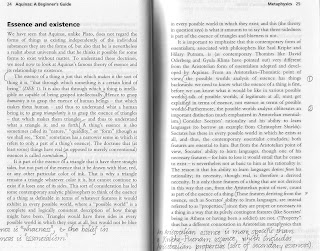Moleskines and other notebook thingees
Are you the kind of person who buys a shiny, expensive notebook journal and faithfully writes profound thoughts in it for a few days, then forgets about it and never uses it again? I have several expensive Moleskine and Paperblanks journals that only have the first couple of pages filled out. It's quite sad, really.
And yet I want to get another one and start again, afresh. I have this need to write things down as I read; or if I make some resolution about a new way to do things, I need to write it down. I believe Thomas David Baker keeps a daily journal - Tom, how do you keep it up? Anyway, I'm not talking about something daily here - I'm talking about occasional jottings.
I thought I could do this on my PDA. But electronic does not cut it for this sort of thing. It has to be pencil on paper (yes, pencil for me, not pen - I need the ability to erase). It can't be on a luminous screen or touchpad. No automatic backups, alas, but real paper - fibrous, ligneous, blottable pulp.
So I am thinking about buying, yet again, an expensive Moleskine thingee. I'm thinking a mini one (2.5×4) for my wallet, and a small but skinny one (the 3.5×5.5 ones that come in a three-pack) for my profound inner thoughts at my desk. To avoid the phenomenon of journals that are barely started then discarded, these journals are going to be mixed purpose: rather than dedicating a volume to a single purpose (such as "Reflections" or "Notes From Lectures" or "Comments on Scriptures"), they will have all of these things smushed together - separated only by dates. So they will be a stream of different things that I need to write down. Perhaps never to be read again - the act of writing it down is what is needed.
Or I could take up one of my existing barely-filled-in journals and continue using those.
Nah.
And yet I want to get another one and start again, afresh. I have this need to write things down as I read; or if I make some resolution about a new way to do things, I need to write it down. I believe Thomas David Baker keeps a daily journal - Tom, how do you keep it up? Anyway, I'm not talking about something daily here - I'm talking about occasional jottings.
I thought I could do this on my PDA. But electronic does not cut it for this sort of thing. It has to be pencil on paper (yes, pencil for me, not pen - I need the ability to erase). It can't be on a luminous screen or touchpad. No automatic backups, alas, but real paper - fibrous, ligneous, blottable pulp.
So I am thinking about buying, yet again, an expensive Moleskine thingee. I'm thinking a mini one (2.5×4) for my wallet, and a small but skinny one (the 3.5×5.5 ones that come in a three-pack) for my profound inner thoughts at my desk. To avoid the phenomenon of journals that are barely started then discarded, these journals are going to be mixed purpose: rather than dedicating a volume to a single purpose (such as "Reflections" or "Notes From Lectures" or "Comments on Scriptures"), they will have all of these things smushed together - separated only by dates. So they will be a stream of different things that I need to write down. Perhaps never to be read again - the act of writing it down is what is needed.
Or I could take up one of my existing barely-filled-in journals and continue using those.
Nah.





